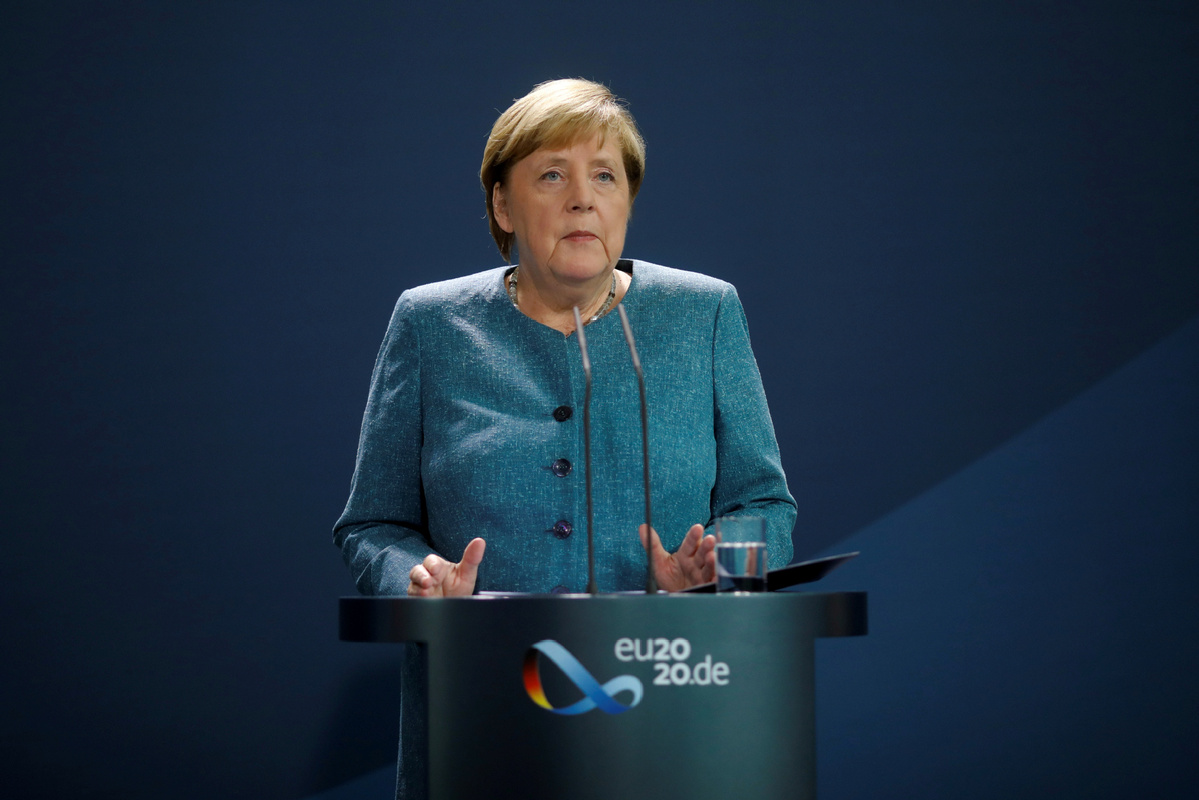Merkel says Novichok used on Navalny


BERLIN/MOSCOW-Russian opposition leader Alexei Navalny, who is in intensive care in a Berlin hospital, was poisoned with a Soviet-style nerve agent in an attempt to murder him, German Chancellor Angela Merkel said on Wednesday.
She said Berlin now expected Moscow to explain itself and that Germany would consult its NATO allies about how to respond, raising the prospect of new Western sanctions on Russia.
"This is disturbing information about the attempted murder through poisoning against a leading Russian opposition figure,"Merkel said. "Alexei Navalny was the victim of an attack with a chemical nerve agent of the Novichok group."
Moscow has denied involvement in the incident, and the Russian Foreign Ministry said Germany's assertion was not backed by evidence, complaining about the way Germany had chosen to release information about Navalny.
The Russian doctors who treated Navalny in Siberia-where he was taken after he became violently ill on a flight on Aug 20-have repeatedly contested the German hospital's poisoning conclusion. They said they had ruled out poisoning as a diagnosis and that their tests for cholinesterase inhibitors came back negative.
Russia's deputy UN ambassador, Dmitry Polyansky, dismissed the finger pointing as a knee-jerk reaction. "Today accusing #Russia is a must-do for any Western country," he said in a tweet.
'Ready' to cooperate
Kremlin spokesman Dmitry Peskov said Moscow is "ready and interested in full cooperation and exchange of information" with Germany, but added that Berlin still hasn't provided any official response to formal requests from the Russian prosecutor general's office and the doctors who treated Navalny.
Peskov reiterated that the Russian doctors didn't find any poisonous substances in Navalny's system. Russian Foreign Ministry spokeswoman Maria Zakharova charged on state TV that Germany preferred "public statements without providing any facts whatsoever" to "a thorough investigation".
Novichok was developed by the Soviet military in the 1970s and 1980s. Several Russian lawmakers have said that Russia isn't manufacturing Novichok-type agents.
Navalny, 44, was flown to Germany last month after collapsing on a domestic Russian flight after drinking a cup of tea that his allies said was poisoned.
The White House said the use of Novichok was "completely reprehensible", with the US National Security Council saying Washington would work with allies "to hold those in Russia accountable, wherever the evidence leads, and restrict funds for their malign activities".
Britain and France joined in condemning the use of Novichok, along with the European Union, which said those responsible must be brought to justice.
Berlin's Charite hospital, which is treating Navalny, said he remained in a serious condition in an intensive care unit connected to an artificial lung ventilator, even though some of his symptoms were receding.
Agencies via Xinhua

































